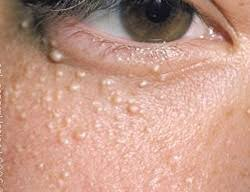Dengue
Dengue fever is a viral infection transmitted to humans through the bite of an infected mosquito. The main vectors of this disease are the mosquitoes Aedes aegypti and Ae. Albopictus.
The virus that causes dengue fever is called dengue virus (DENV). There are four DENV serotypes and four possible infections.
Millions of cases of dengue fever are reported worldwide every year. Dengue fever is most prevalent in Southeast Asia, the Western Pacific Islands, Latin America and Africa.
However, the disease is spreading to new territories, including localized outbreaks in Europe and the southern United States. Researchers are working on a vaccine against dengue fever. In areas where dengue is endemic, the best way to prevent infection during this time is to avoid mosquito bites and take steps to reduce the mosquito population.
Symptoms
Many people do not have signs or symptoms of a dengue infection. When symptoms appear, they can be mistaken for another illness, such as the flu, and usually begin 4 to 10 days after being bitten by an infected mosquito.
- Dengue fever causes a fever (104F (40C)) and one of the following signs and symptoms
- Headache
- Muscle, bone or joint pain
- Nausea
- Vomiting
- Pain behind the eyes
- Swollen glands
- Rash
Most people recover in about a week. In some cases, symptoms may worsen and become life-threatening. This is called severe dengue fever, dengue hemorrhagic fever, or dengue shock syndrome.
Severe dengue occurs when blood vessels become damaged and fail. And the number of clot-forming cells (platelets) in the bloodstream decreases. This can lead to shock, internal bleeding, organ failure, and even death. Warning signs of severe, life-threatening dengue fever can appear quickly. Warning signs usually appear 1 to 2 days after the fever subsides and may include:
- Severe stomach pain
- Persistent vomiting
- Bleeding from your gums or nose
- Blood in your urine stools or vomit
- Bleeding under the skin
- Difficulty in breathing
- Fatigue
When to see a doctor
Severe dengue fever is a life-threatening condition. If you have recently visited an area known to have dengue or fever and see any warning signs, contact your doctor immediately. Warning signs include severe abdominal pain, vomiting, difficulty breathing or blood in the nose, gums, vomiting, or bowel movements.
Call your doctor if you have recently traveled and have a fever and mild symptoms of dengue.
Causes
Dengue fever is caused by each of the four types of dengue virus. You cannot get dengue by being around people who have dengue. In contrast, dengue fever is transmitted through mosquito bites. The two mosquito species most responsible for the transmission of dengue virus are found both in and near human settlements.
When a mosquito bites a person infected with dengue, the virus enters the mosquito. Then, when the infected mosquito bites another person, the virus enters that person's bloodstream and causes an infection.
Risk factors
- You are at increased risk of getting dengue or more severe forms of the disease if you: If you live or travel in the tropics. Living in tropical and subtropical areas increases the risk of contracting the virus that causes dengue fever. The regions most at risk are Southeast Asia, the Western Pacific Islands, Latin America and Africa.
- You are at increased risk of developing dengue or a more serious form of the disease if you: If you live or travel in the tropics. Living in tropical and subtropical areas increases the risk of contracting the virus that causes dengue fever. The regions most at risk are Southeast Asia, the Western Pacific Islands, Latin America and Africa.
Complications
Severe dengue fever can cause internal bleeding and organ damage. Blood pressure can drop to dangerous levels and cause shock. In some cases, severe dengue fever can be fatal. Women who contract dengue during pregnancy can pass the virus on to their babies during childbirth. In addition, babies born to mothers who contract dengue during pregnancy are at greater risk of preterm delivery, low birth weight, or fetal distress.
Prevention
Vaccine
In Areas of the world endemic for dengue have approved a dengue vaccine (Dengvaxia) for people aged 9 to 45 who have had at least one dengue fever. The vaccine is administered three times within 12 months.
This vaccine is only approved for people who have a documented history of dengue or who have had blood tests that indicate a previous infection with one of the known seropositive dengue viruses. In people who have never had dengue in the past (serum negative), vaccination appears to increase the risk of developing severe dengue and future hospitalizations.
You should live in an air conditioned or well protected house. Mosquitoes that carry the dengue virus are most active from morning to night, but may bite at night. Wear protective clothing. Wear a long-sleeved shirt, long pants, socks, and shoes when you go to mosquito-prone areas.
The mosquitoes that carry the dengue virus typically live in and around homes and breed in standing water that can collect on items such as used car tires. This can help reduce mosquito populations by removing habitats where mosquitoes lay their eggs. B. Clean, empty containers of standing water, such as flower pots, pet dishes, and vases. Keep the water tank closed between washes.
Written by: Hadia khalid













1 Comments
Really appreciative 😍
ReplyDeletecomment me if you want to learn more about it